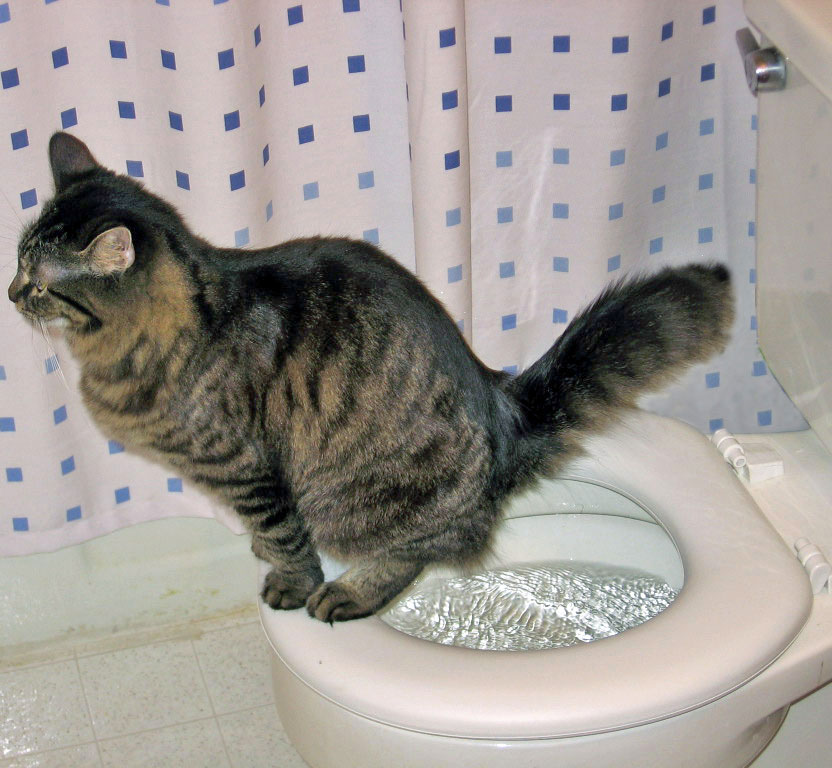Never Flush Cat Poop Down Your Toilet - Protect Your Pipes System
Never Flush Cat Poop Down Your Toilet - Protect Your Pipes System
Blog Article
Nearly everybody maintains their own individual conception in relation to How to Dispose of Cat Poop and Litter Without Plastic Bags.

Intro
As cat owners, it's important to bear in mind how we throw away our feline pals' waste. While it might appear convenient to purge cat poop down the bathroom, this technique can have destructive effects for both the environment and human health.
Alternatives to Flushing
Luckily, there are more secure and extra responsible ways to throw away pet cat poop. Consider the adhering to alternatives:
1. Scoop and Dispose in Trash
One of the most common method of getting rid of feline poop is to scoop it right into an eco-friendly bag and toss it in the garbage. Make certain to make use of a committed litter scoop and deal with the waste quickly.
2. Use Biodegradable Litter
Opt for naturally degradable feline trash made from materials such as corn or wheat. These trashes are environmentally friendly and can be safely dealt with in the trash.
3. Bury in the Yard
If you have a backyard, consider hiding pet cat waste in a marked location far from vegetable gardens and water resources. Make sure to dig deep enough to prevent contamination of groundwater.
4. Install a Pet Waste Disposal System
Buy a pet dog garbage disposal system particularly created for feline waste. These systems use enzymes to break down the waste, lowering smell and environmental impact.
Health Risks
Along with ecological worries, flushing feline waste can likewise pose wellness threats to human beings. Feline feces may have Toxoplasma gondii, a bloodsucker that can cause toxoplasmosis-- a possibly serious illness, especially for pregnant women and people with weakened immune systems.
Ecological Impact
Purging cat poop presents damaging pathogens and bloodsuckers right into the supply of water, posturing a substantial danger to aquatic ecosystems. These pollutants can adversely affect marine life and concession water quality.
Verdict
Liable animal ownership extends past providing food and sanctuary-- it also entails proper waste monitoring. By refraining from flushing feline poop down the toilet and selecting different disposal techniques, we can minimize our ecological impact and safeguard human wellness.
Why Can’t I Flush Cat Poop?
It Spreads a Parasite
Cats are frequently infected with a parasite called toxoplasma gondii. The parasite causes an infection called toxoplasmosis. It is usually harmless to cats. The parasite only uses cat poop as a host for its eggs. Otherwise, the cat’s immune system usually keeps the infection at low enough levels to maintain its own health. But it does not stop the develop of eggs. These eggs are tiny and surprisingly tough. They may survive for a year before they begin to grow. But that’s the problem.
Our wastewater system is not designed to deal with toxoplasmosis eggs. Instead, most eggs will flush from your toilet into sewers and wastewater management plants. After the sewage is treated for many other harmful things in it, it is typically released into local rivers, lakes, or oceans. Here, the toxoplasmosis eggs can find new hosts, including starfish, crabs, otters, and many other wildlife. For many, this is a significant risk to their health. Toxoplasmosis can also end up infecting water sources that are important for agriculture, which means our deer, pigs, and sheep can get infected too.
Is There Risk to Humans?
There can be a risk to human life from flushing cat poop down the toilet. If you do so, the parasites from your cat’s poop can end up in shellfish, game animals, or livestock. If this meat is then served raw or undercooked, the people who eat it can get sick.
In fact, according to the CDC, 40 million people in the United States are infected with toxoplasma gondii. They get it from exposure to infected seafood, or from some kind of cat poop contamination, like drinking from a stream that is contaminated or touching anything that has come into contact with cat poop. That includes just cleaning a cat litter box.
Most people who get infected with these parasites will not develop any symptoms. However, for pregnant women or for those with compromised immune systems, the parasite can cause severe health problems.
How to Handle Cat Poop
The best way to handle cat poop is actually to clean the box more often. The eggs that the parasite sheds will not become active until one to five days after the cat poops. That means that if you clean daily, you’re much less likely to come into direct contact with infectious eggs.
That said, always dispose of cat poop in the garbage and not down the toilet. Wash your hands before and after you clean the litter box, and bring the bag of poop right outside to your garbage bins.
https://trenchlesssolutionsusa.com/why-cant-i-flush-cat-poop/

As a fervent person who reads on Don’t flush cat feces down the toilet, I was thinking sharing that piece of content was mandatory. Do you know about somebody who is interested by the niche? Be sure share it. I praise you for your time. Please stop by our site back soon.
Recurring Service Plans Report this page